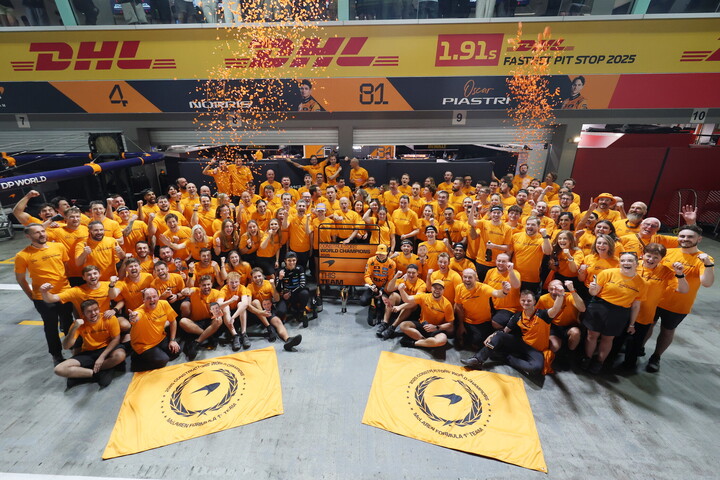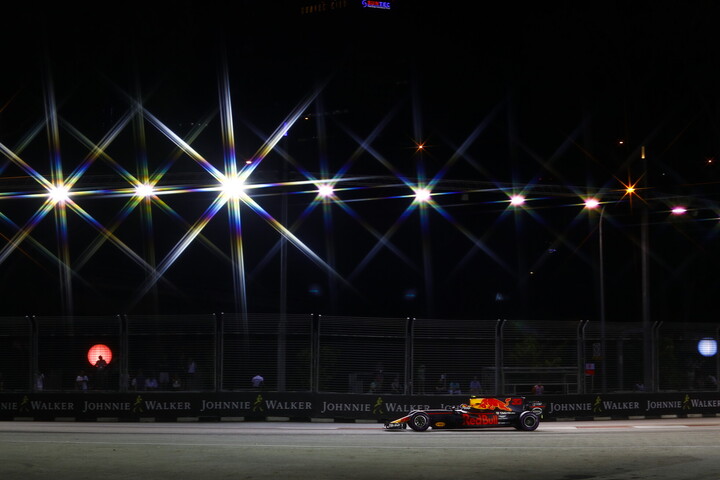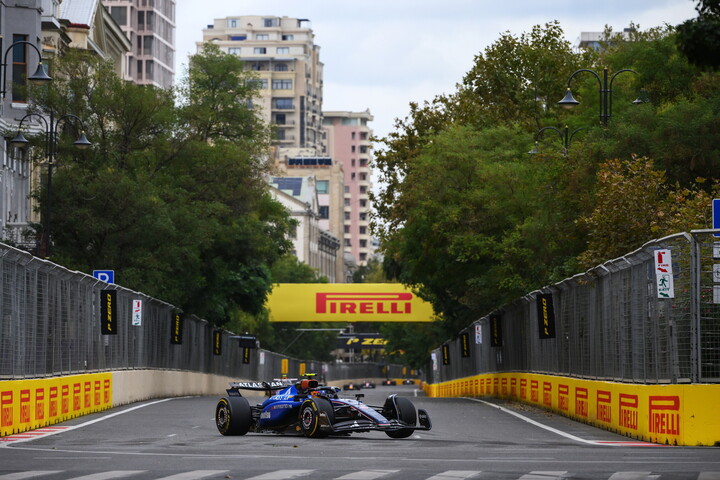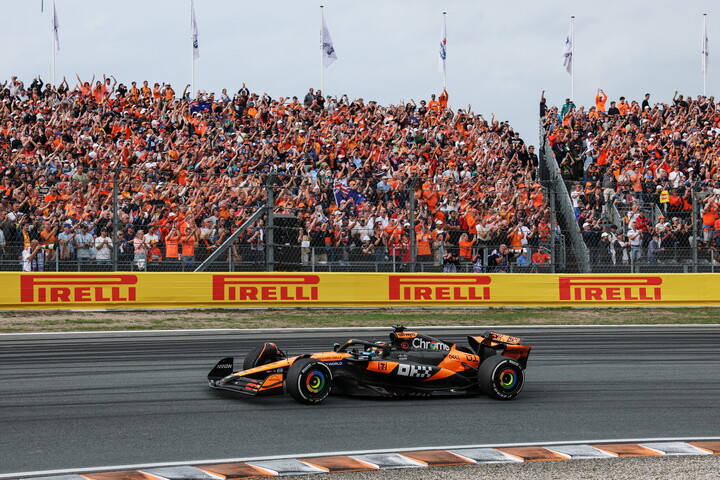On this week #33: Nelson Piquet

Nelson Piquet was born on 17 August 1952 in Rio de Janeiro. He won the Formula 1 world championship three times, in 1981, 1983 and 1987 and was part of that quartet of drivers, along with Alain Prost, Ayrton Senna and Nigel Mansell, who made their mark on the sport through their bitter rivalry for over a decade.
His father, Estacio Gonçalves Souto Maior was Brazil's Minister of Health from 1961 to 1964 and he encouraged Nelson to play tennis, something he proved adept at, to the extent that, at the age of 16 he was sent to a tennis school in California. While that was going on, a certain Emerson Fittipaldi had captured the nation's imagination and Nelson decided he preferred racing to racket sports, taking up karting and sports car racing, using his mother's surname, Piquet. However, his father pushed him towards a career in engineering and denied him any financial support for his racing activities, but to no avail. With advice from Fittipaldi, young Nelson found the money, by working in a garage and selling his car, to finance a racing programme in his native Brazil. In 1977 he won the local Formula Vee championship and then decided to head to England to try his luck there.

In 1978, he won one of the two British Formula 3 championships, beating Jackie Stewart's record by taking 13 wins from 26 starts and he finished second in the other series. His exploits attracted the attention of several Formula 1 teams who were keen for him to start racing that same season. He made his debut for Ensign at Hockenheim, then raced twice in a private McLaren, before Bernie Ecclestone, then the boss of Brabham, took him on as a potential successor to Niki Lauda, entering a third car for him in a few Grands Prix. The following year, he had a fulltime drive for the Alfa Romeo-powered team alongside the Austrian. It was a great education for his first season, as he also got the chance to work with engineering genius Gordon Murray.

The results started to come in 1980, with Piquet winning three times and taking two pole positions in the Ford-Cosworth powered car, destroying his team-mates, firstly the Argentinian Ricardo Zunino and then the Mexican Hector Rebaque, who only managed to score one point between them compared to the Brazilian's 54. Then, in 1981, there were three more wins and other strong results, enough for him to clinch his first world title. That season, the Williams had actually been the best car but the internal feud between its drivers, Australia's Alan Jones and the Argentine Carlos Reutemann, worked in Brabham's favour and Piquet beat the South American by a single point (50 to 49) although Williams took the Constructors' title, 34 points ahead of Brabham. At the final race of the year, in the Caesars Palace parking lot in Las Vegas, there were actually three drivers in with a chance of the title, with Jacques Laffite challenging the two South Americans. In the race, an exhausted Piquet finished fifth just ahead of Laffite, while a troubled Reutemann failed to score points for the second race in a row, seeing the crown which had seemed his with two rounds remaining, slip from his grasp, much to the delight of team-mate Jones who ended his career with a win.

In 1982, Brabham switched to the BMW turbo engine, which was very powerful, but still unreliable and, sporting the number 1 on his car, Piquet only took one win in Canada, which he actually considers one of his best races. The following year, the engine was finally reliable and Nelson was fighting for the title once more. It was another three-way battle with the Frenchmen Alain Prost in the Renault and Rene Arnoux in the Ferrari, both determined to bring the drivers' crown to France for the first time. After winning the opening round on home turf in Rio de Janeiro, Piquet did not win again until the Italian Grand Prix in Monza. There followed another victory at the penultimate round at Brands Hatch and then came the finale, in South Africa at the Kyalami track. Reliability problems led to both Arnoux and then Prost retiring, which meant Piquet only had to finish fourth to take the title, which he managed comfortably, actually making it to the third step of the podium. There was a moment of anxiety to follow, when team owner Ecclestone admitted that the fuel used during the season might not have been exactly as required, but no one seemed keen to protest and try and have the team disqualified, not exactly an uncommon situation around that time in Formula 1. Piquet stayed with Brabham for a further two seasons, but the relationship ran out of steam because the car was no longer that competitive and the Brazilian was increasingly keen to cash in on his status and live the jet-set life, which Ecclestone was not keen to finance. He still took a further three wins, including the 1985 French Grand Prix, which also marked the return to the Formula 1 winner's enclosure for Pirelli for the first time since 1957.

At the end of 1985, Piquet accepted a lucrative offer from Frank Williams and thus began a no holds barred rivalry with team-mate Nigel Mansell. That first year, their feuding cost the Williams team the title, even if in the final round in Adelaide, it turned out to be the tyres that prevented the Brazilian and English drivers from beating Prost. However, in 1987, Piquet had the upper hand over his team-mate, thanks to better reliability, even if he only won three races to Mansell's six. It was the highpoint of his career before failing to shine having moved to Lotus for the following year, not helped by a less than competitive car. In 1990 he moved to Benetton with an incentivising contract where he would be paid 50,000 dollars per point scored and 100,000 for a win. He only failed to score three times and he won the last two races of the year in Japan and Australia, which filled his coffers as he finished third in the championship behind the two dominant drivers that year, Senna and Prost.

1991 was more difficult and his only win came in Montreal at the end of a crazy race, after he outwitted his most bitter rival, Mansell, whose car stopped just a couple of kilometres from the finish line while leading. It was Piquet's 23rd and final win whose passion and motivation were waning. The final blow came in the last five races, when he was regularly outqualified by his new Benetton team-mate, an up and coming young German by the name of Michael Schumacher. In January 1992, he announced his retirement from Formula 1, but his love of racing steered him to trying his hand at the Indianapolis 500. He qualified for the famous race that year, but then came a terrible accident that caused serious leg injuries and he was unable to take part. He came back the following year, but retired with engine failure after just 38 laps. After that, he took part in a few sports car races, focusing mainly on guiding his son Nelsinho's career. In 2006, father and son, along with Christophe Bouchut and Helio Castroneves were delighted winners of the 1000 Miles of Interlagos.
His Formula 1 palmares features three world titles, 23 wins, 24 pole positions and 604 podium finishes from 204 Grand Prix starts.




